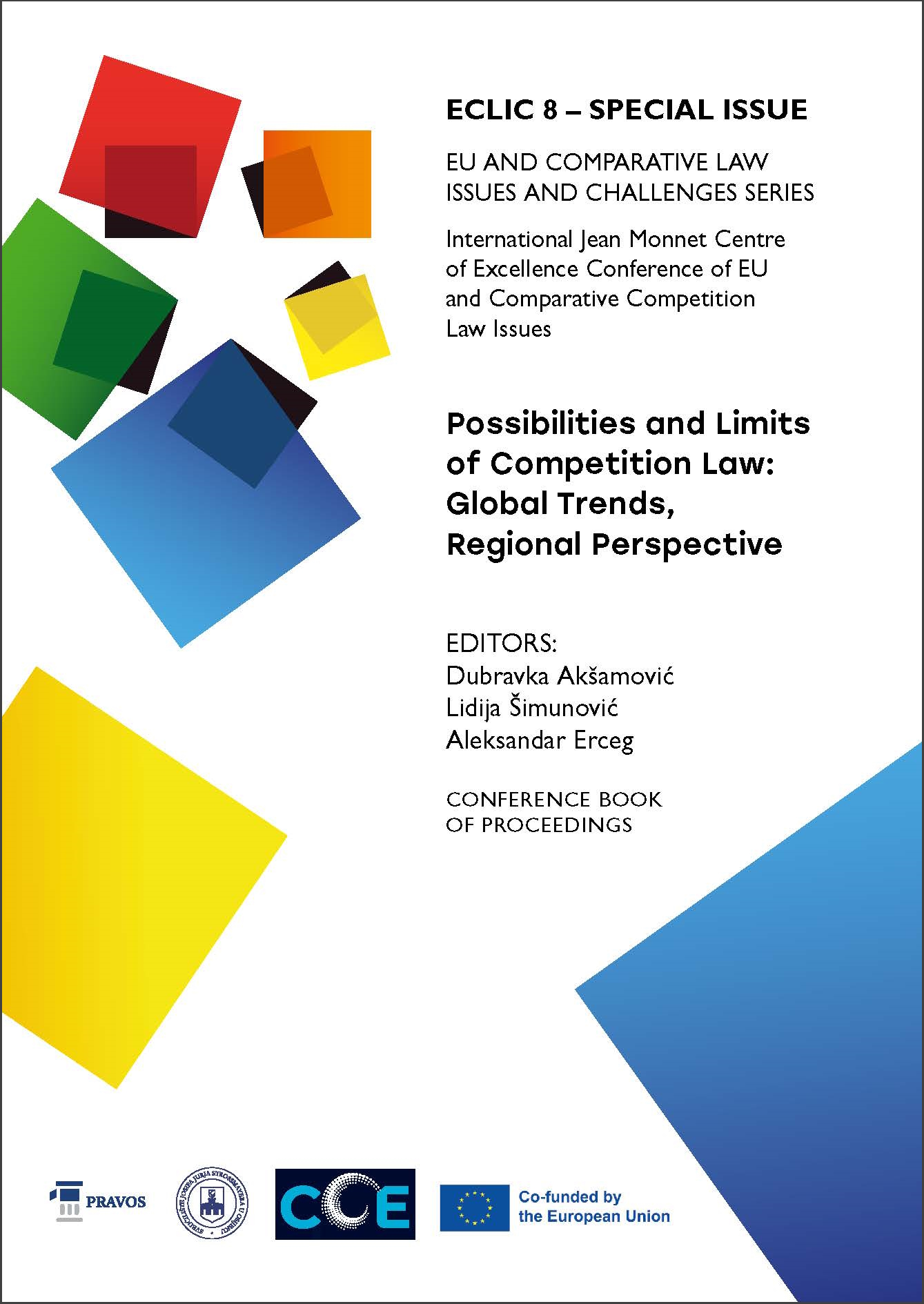COMPETITION LAW AS A FUNDAMENTAL POLICY TOOL FOR A TRANSITION TOWARDS MORE SOCIALLY AND ENVIRONMENTALLY SUSTAINABLE SOCIETIES
DOI:
https://doi.org/10.25234/eclic/35836Abstract
Competition law represents a pillar of the European Union’s Internal Market and it is a fundamental part of the acquis communautaire that all the member States and Countries willing to join the Union shall implement in their legal system. According to the traditional economic thinking, which refers to the so-called Chicago School, competition law is directed at promoting economic efficiency of the marker, but it should not address other broader societal problems. However, the economic crisis before, and an increasing concentration rate on the market, especially in case technology and, more in general, digital gatekeepers are involved, put the neoclassical economics’ assumptions into question. Indeed, other problems, such as rising indexes of income inequality and poverty – also in developed economies – together with the big challenge represented by climate change, urged a rethinking of all the traditional policies, by putting less attention on market and efficiency, and more focus on the society and on citizens’ fundamental rights. Competition law, as well, did not fall outside this ‘policy reshuffling’, which aims at creating a sort of complementarity, or multi-tool level playing field, directed at improving our societies. A question may arise in this realm, having in mind the traditional conception of competition law: What is the role that this policy has to pursue? And, especially, why has it to deal with issues such as income Inequalities and environmental protection? At a first sight, linking competition law to these broad policy objectives may appear a mere academic exercise, but in reality it is not. The reason lies exactly in the economic reasons behind how income Inequalities can be addressed and how more sustainable products can be developed. The present paper shows how competition law can play a fundamental role in pursuing these two fundamental policy objectives of every democratic society, with particular reference to the European Union. It will also address, in light on the planned and expected enlargement of the EU.
Downloads
Published
Issue
Section
License
Copyright (c) 2025 Andrea Piletta Massaro

This work is licensed under a Creative Commons Attribution-NonCommercial 4.0 International License.
Authors retain the copyright on the papers published in the Journal, but grant the right of first publication to the Journal. Papers accepted for publication or already published in ECLIC of the Faculty of Law in Osijek may be published by the author(s) in other publications only with proper notice of its previous publication in ECLIC.


